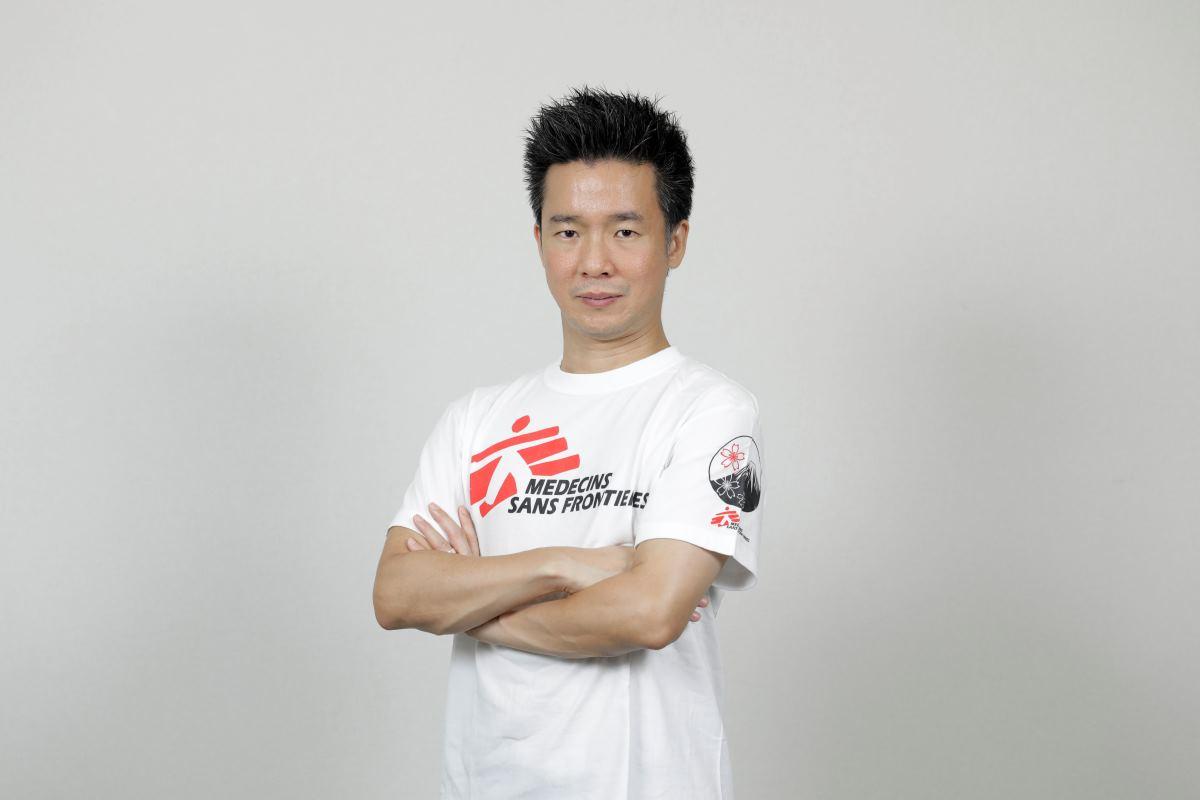Myanmar on the brink: A population in desperate need

TOKYO, Japan - 18.6 million people.
Across Myanmar, 18.6 million people are struggling to meet their basic needs—including access to medical care. The humanitarian situation in Myanmar is rapidly deteriorating, and yet the international community is crippled by inaction, their attention elsewhere.
As a humanitarian, I have witnessed crises in Africa and the Middle East, driven by conflicts and large-scale displacements. However, my recent visit to Myanmar has given me an eye-opening insight into its fast-unfolding humanitarian crisis. Due to the escalating civil war, large swaths of the country are in chaos today, a third of the population in desperate need of urgent humanitarian aid. Three million have been forcibly displaced in search of safety from the violence. As one citizen has put it to Doctors Without Borders / Médecins Sans Frontières (MSF), “Thousands tried to evacuate but many were killed or wounded. The violence is still ongoing.” Early this August, our teams in Bangladesh received escalating numbers of wounded Rohingya people, 40 percent of them women and children, who were again forced to flee Myanmar because of the violence.
Doctors Without Borders has been working in Myanmar for over 30 years providing medical humanitarian assistance from basic healthcare to HIV treatment to mental care. Following the 2021 military takeover, our teams on the ground have witnessed the intensifying conflicts impacting public health after thousands of medical professionals left their jobs. Widespread insecurity and violence, and administrative barriers have hampered the delivery of supplies and humanitarian access, further limiting the availability of healthcare in the country.
In Myanmar’s largest city of Yangon, Doctors Without Borders supports what has now become Myanmar’s only functioning tuberculosis (TB) hospital, where almost 50 per cent of the country’s patients with drug-resistant TB receive care. However, restrictions on humanitarian aid set by the authorities have had a serious impact on the hospital's capacity to operate as before. Some hospital wards have been closed and equipment has not been replaced. Doctors Without Borders is also concerned about the TB / HIV patients in northern Shan and Kachin who have been handed over to the national TB program as any interruption of their treatment may result in resistance and/or deterioration of their conditions.
In Yangon, I met Doctors Without Borders volunteers from the ethnic Rohingya community who had traveled on foot for days, to escape the escalating violence in Buthidaung, Rakhine State. Civilians are caught in the middle of the conflict, hit by stray bullets and targeted/indiscriminate attacks, with their houses and belongings destroyed by widespread fires. Many of them have had to repeatedly flee while men feared forced recruitment from all sides of the warring parties. As of 10 August, 2024, Doctors Without Borders teams in Bangladesh treated 50 war-wounded Rohingya, of whom 18 are children, arriving from Myanmar. The spike in number of violence-related injuries, including mortar shell injuries and gunshot wounds, indicates the worsening humanitarian crisis in Rakhine.
The escalation of violence in Rakhine, Kachin, and Shan States since late 2023 has severely affected Doctors Without Borders’ medical activities. Our office and pharmacy in Buthidaung, Rakhine, was burnt down in April—along with the life-saving drugs inside. The breakdown of a year-long ceasefire brokered in November 2022 has led to drastic reduction in Doctors Without Borders’ monthly outpatient consultations in Rakhine, plummeting from 6,684 in September 2023 to just 81 in March 2024. We have also been alerted by increasing maternal and neonatal deaths since 2023, signifying multiple healthcare barriers.
As with many other humanitarian organizations, it has just been impossible for Doctors Without Borders to provide essential healthcare to the people in areas controlled by ethnic armed groups due to movement restrictions set by the authorities.
Doctors Without Borders used to run 25 mobile clinics in Rakhine, but these activities have been largely suspended for 8 months because of the conflict. When I visited Sittwe, Doctors Without Borders teams had just received travel authorization to at least one area, having been able to reach some patients. Hundreds, including pregnant women from both the Rohingya and Rakhine communities, came to our clinics seeking essential healthcare. The resumption of this activity addresses only a small fraction of the enormous medical needs. Yet unmet are the greater medical and humanitarian needs in other parts of Rakhine and the country.
Doctors Without Borders observes neutrality and impartiality in the name of universal medical ethics and the right to humanitarian assistance. We aim for full and unhindered access in the provision of much needed medical care. But how do we hold fast to our principles while reaching those who need our help the most in Myanmar?
The humanitarian situation in Myanmar is more serious than ever. Persistent diplomatic efforts by Japan, China, India, as well as Thailand and other ASEAN countries are indispensable to enable humanitarian organizations regain access to those in need. Furthermore, all parties involved in the conflict must protect civilians and medical facilities. The suffering of the people of Myanmar, where over 18 million are unable to meet even their basic needs including access to medical care, should not be neglected.
Shinjiro Murata is the general director of Doctors Without Borders / Medecins Sans Frontieres (MSF) Japan. Since joining Doctors Without Borders in 2005, he has been working in various Doctors Without Borders field projects including those in Syria, South Sudan, and Yemen as the Head of Mission. He was a John F. Kennedy fellow at Harvard Kennedy School, prior to assuming the current position in August 2020.
Doctors Without Borders / Médecins Sans Frontières (MSF) is an international, independent medical humanitarian organization that delivers emergency medical aid to people affected by conflict, epidemics, healthcare exclusion and natural or man-made disasters.




